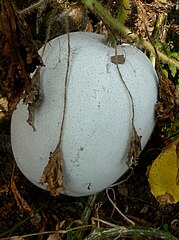Kumbalanga in English
- English name of Kumbalanga is ‘Ash Gourd‘
Kumbalanga in Hindi
- Hindi name of Kumbalanga is ‘Petha‘
Kumbalanga in Telugu
- Telugu name of Kumbalanga is ‘Boodidi Gummadikaya‘
Kumbalanga in Tamil
- Tamil name of Kumbalanga is ‘Neer Poosanikkai‘
Kumbalanga in Kannada
- Kannada name of Kumbalanga is ‘Budu Kumbda‘
Kumbalanga in Marathi
- Marathi name of Kumbalanga is ‘Budu Kumbda‘
Kumbalanga in Gujarati
- Gujarati name of Kumbalanga is ‘Kolu‘
Kumbalanga in Bengali
- Bengali name of Kumbalanga is ‘ChaalKumro‘

What is Kumbalanga?
Kumbalanga, also known as Ash gourd in English, is a versatile and nutritious vegetable that has been gaining popularity for its numerous health benefits. This humble vegetable, with its intriguing English name, has a lot to offer in terms of nutrition and culinary applications.
One of the key reasons why Kumbalanga has been making waves in the health and wellness community is its impressive array of health benefits. Rich in essential nutrients like vitamins, minerals, and antioxidants, Kumbalanga is a nutritional powerhouse that can boost your overall well-being. From supporting digestion and weight management to promoting skin health and immune function, this vegetable packs a powerful punch when it comes to enhancing your health.
Moreover, Kumbalanga is low in calories and high in fiber, making it an excellent choice for those looking to maintain a healthy weight or improve their digestive health. Its mild flavor and versatile texture make it a great addition to a wide range of dishes, from soups and stews to curries and salads. Whether you enjoy it raw, cooked, or juiced, Kumbalanga can easily be incorporated into your daily diet to reap its many benefits.
For those looking to explore new culinary horizons, Kumbalanga offers a unique and delicious addition to your recipes. Its subtle taste and ability to absorb flavors make it a versatile ingredient that can elevate the taste of any dish. Whether you’re a seasoned chef or a novice in the kitchen, experimenting with Kumbalanga can open up a world of culinary delights and creative possibilities.
Kumbalanga’s English Name
Kumbalanga, the versatile vegetable known for its exceptional health benefits, has an interesting alter ego in the English language – Ash gourd. This intriguing name hints at the vegetable’s appearance after it matures, developing a dusty, ashy coating that sets it apart from other gourds. The journey of Kumbalanga, from cultivation to culinary applications, is a fascinating one that showcases its adaptability and versatility in various dishes.
The English name “Ash gourd” has its roots in the vegetable’s physical characteristics and the transformation it undergoes as it ripens. This name not only adds a touch of mystique to Kumbalanga but also highlights its unique qualities that make it a standout ingredient in both traditional and modern cuisines.
Exploring the regional and botanical titles for Kumbalanga reveals a rich tapestry of names that reflect its widespread cultivation and popularity across different cultures. From Petha in North India to Kumbalanga in South India, this vegetable goes by various names, each encapsulating a bit of its cultural significance and culinary importance.
Health Benefits of Kumbalanga
- Kumbalanga, also known as Ash gourd, is not just a versatile vegetable but a true “hydration hero” with its high water content. For individuals of all ages, staying hydrated is essential for overall health, making Kumbalanga a valuable addition to your diet. Its hydrating properties can help keep you feeling refreshed and energized throughout the day, especially during hot weather or after physical activities.
- Kumbalanga plays a significant role in supporting weight management. As people of all social backgrounds strive to maintain a balanced diet, incorporating Kumbalanga can be beneficial due to its low calorie and high fiber content. This vegetable can help you feel full and satisfied, reducing the temptation to indulge in unhealthy snacks or overeat.
- Kumbalanga acts as a digestive health promoter, aiding in digestion and supporting gut health. For everyone concerned about their digestive well-being, the consumption of Kumbalanga can help alleviate digestive issues and promote a healthy gut microbiome. Its fiber content contributes to regular bowel movements and overall digestive comfort.
- Kumbalanga serves as an immune system booster, enhancing immunity and helping to ward off illnesses. In today’s world, where maintaining a strong immune system is a top priority for many, incorporating Kumbalanga into your diet can provide an extra layer of defense against common infections and diseases.
With its numerous health benefits, including hydration, weight management support, digestive health promotion, immune system boosting properties, and more, Kumbalanga truly stands out as a valuable addition to any diet for individuals of all ages and social backgrounds.
Culinary Delights and Applications of Kumbalanga
Kumbalanga, a versatile vegetable known as Ash gourd, offers a plethora of culinary delights and applications that cater to individuals of all ages and backgrounds. From traditional recipes to innovative culinary uses, Kumbalanga cuisine is a treasure trove waiting to be explored. Whether it’s savory dishes like curries and stews or sweet treats like desserts and drinks, this vegetable adds a unique flavor and texture to every meal.
Incorporating Kumbalanga into everyday cooking not only enhances the taste of dishes but also boosts their nutritional value. By adding this nutrient-rich vegetable to your recipes, you can elevate the health benefits of your meals while enjoying delicious flavors. Whether you are a seasoned chef or a cooking enthusiast, experimenting with Kumbalanga in your kitchen can open up a world of possibilities for creating wholesome and satisfying dishes.
With its ability to complement a wide range of flavors and cooking styles, Kumbalanga is a versatile ingredient that can inspire creativity in the kitchen. Whether you are looking to add a refreshing twist to your salads or create a comforting soup, Kumbalanga’s culinary potential is boundless, making it a must-have ingredient for anyone passionate about cooking.







